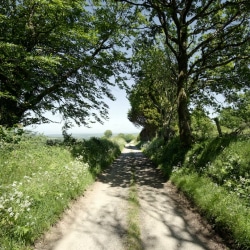Wildlife Friendly Farming

A farm in Hillesden in the UK has experimented with trying to grow the same amount of food it usually does while simultaneously giving over some of its land to nature.
The farm set aside land so that wildlife could prosper instead of growing crops. Grass was left to grow long, and seed producing wildflowers were planted.
More birds
After a while, the bird life increased. Not only were there more seed eating birds, but also birds that thrive on insects increased too as they had greater shelter provided by thicker hedges and longer grasses.
Benefit to crops
There was also a benefit to the crop production on the farm. The increase in insect eating birds meant they protected the crops from being eaten by the insects. Pollinating insects such as bees and butterflies also increased which likewise benefits the farm’s productivity.
The study, which began in 2005, was paid for by the government and was carried out by the Centre of Ecology and Hydrology.
Knock on effect
Ecologists hope the study inspires other farms to take a similar path. There is no shortage of projects in the UK that similarly highlight the benefit of ‘rewilding’. In Kent a nature reserve has brought back bison to the British countryside for the first time in 6000 years.
Rewilding can be beneficial in slowing climate change as often it involves restoring lost woodland or forests. It can also benefit biodiversity and stop the threat to many species. There are often unexpected benefits too such as providing a balance ecosystem, preventing one species from overpopulation, and allowing others to prosper.



